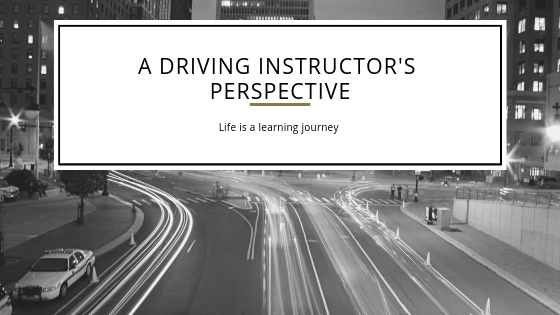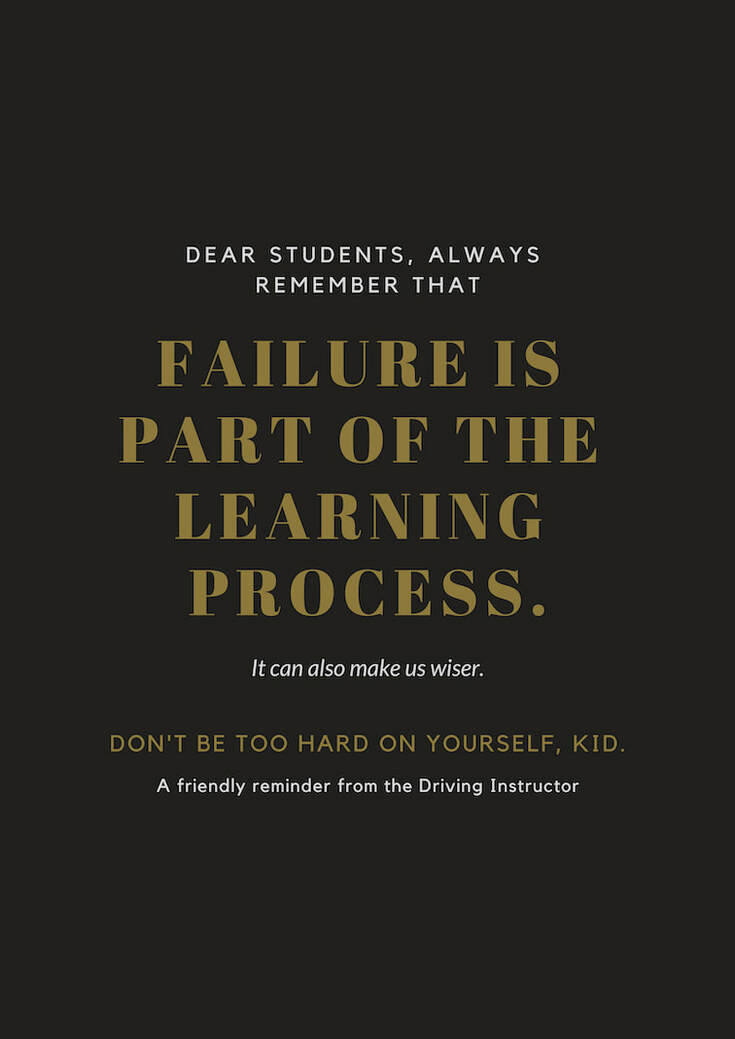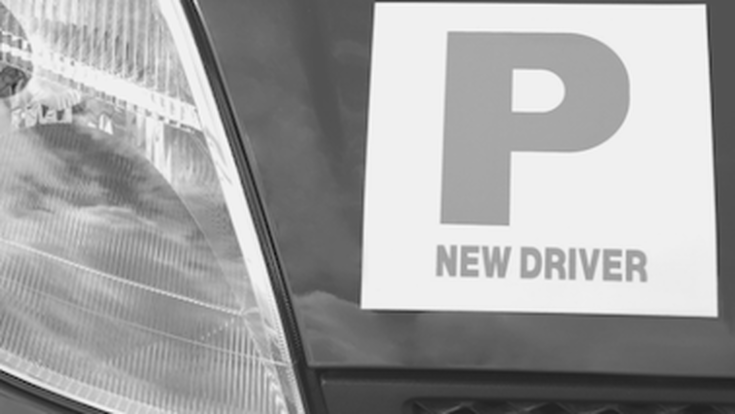|
As I wondered who I could talk to about the meaning of life as a journey, my mind immediately turned towards my old driving instructor. His name is John. You know Rod Stewart, the singer? He might as well be John’s brother, for their resemblance is striking. Why did I think of John and immediately pick up the phone? It’s because, back in the day, John and I used to talk a lot during my one-hour long driving lessons. At some point, he began serving as an agony uncle who always had an answer for every problem, with some very unconventional solutions! He could turn a serious issue into a laughing matter, just like that. I will always remember John as someone who saw the best in me and encouraged me to look at challenges from a different perspective. I will also remember John as a wise man, a good listener, and a person in the know about where to eat, or what to watch at the theatre or movies. As I write this, John is on a Caribbean cruise with his lovely wife of more than 40 years! I hope he won’t mind me saying this, but he once told me that the secret to a happy marriage lies in the knowledge that your wife is always right! Hadn’t spoken to him in a while, but when I picked up the phone and dialled his number, it was immediately answered. Without beating about the bush, I told him that I was now into writing, and would love it if he could help me figure out a few life lessons from a driving instructor’s perspective. “Yes, I’d love to!” No questions, no “I’ll see”. Within a few hours, he showed up, ready to talk. What a humbling experience! It’s such a great honour that he could find the time to speak at such short notice. Let the adventure begin! “I guess you have to look at life as a learning journey,” he began. “We could look at life from the first time you sit behind the wheel without driving experience to a point where you can confidently control the car. Each person is an individual; some people pick it up quickly, others have longer learning journeys. For example, 17-year old girls tend to learn faster compared to boys and most adults. Young people often learn to drive manual cars, whereas older learners usually go for an automatic. It’s a matter of preference. Sometimes, older learners take longer because they’re overly cautious, which can be a good thing because they now have an appreciation of danger. However, being overly cautious when emerging from junctions or traffic lights can inconvenience other motorists. It’s all about finding a balance.” I found wisdom in his words. I’ve learnt that although it’s always good to weigh risks before starting something, too much analysis and risk avoidance can lead you nowhere. It has the potential to block other people’s blessings, so be careful who you let analyse your steps as you start something new. Overly cautious opinions, manifesting as doubt and reasoning, can potentially delay your journey or worse still, grind you down, even if they mean well! Emerge from that junction, that point where you need to make choices quickly. Otherwise, you’ll be stuck in the same spot, delaying others in the process. Humble beginnings “Start small. When you’re learning, you often begin your journey in a quiet space, on a less busy road. As an instructor, I assess confidence levels at the beginning of the learning journey, and the objective is building up confidence. When you can handle the car better, we move on to busier roads, and students will even be able to take the car back home. In my opinion, it’s always best to start lessons with a smaller car. The car itself must be suitable, economical and well-maintained. You don’t want to start with a large or powerful car, although other instructors teach with cars that are just too powerful.” I took note of his point. Most people, no matter how grand their plans are, usually start small. It doesn’t have to be perfect, or exactly how you picture your dream to be in 5- or 10-years’ time. Start wherever you are, with whatever you have, and build up confidence or skills from there. I’ve seen a lot of entrepreneurs lead humble lives as they build up their businesses. Making sacrifices for a bigger dream is nothing to be ashamed of. I’ve also seen people who drive expensive cars when there is little or no food in the house, and have known a few well-to-do professionals who have large, beautiful houses, send their children to expensive private schools, and go on several holidays abroad a year, yet they drive basic cars. I guess it’s a matter of choice, but it helps to have your priorities right if you want to get far in life. Safety and environment “We also stress the importance of road safety. That means adhering to guidelines, and following instructions and regulations. Just because you need to get somewhere doesn’t mean that you’re free to do as you please. Always consider other road users.” I couldn’t agree more. Traffic rules and regulations are there to protect everybody’s interests and must be followed for your own good and that of others. The same thing in our lives: there are certain things that we have to get right legally because cutting corners can lead us astray, or create problems for our customers, employees, family or other stakeholders. Breaking rules for short term gains often have far reaching implications. There might be delays, detours, frustrations and obstacles along the way, but it’s better to get where you want to be safely than never. Speeding for example, doesn’t guarantee that you’ll arrive at your destination. Handling failure and disappointments “Unfortunately, failure is a part of the learning process. Some people take the driving test once and pass, whereas others fail and have to retake several times. It’s always a good feeling when a student passes, but I take it to heart when someone fails. There are many reasons why people fail, for example, not enough tuition or due to silly mistakes. When someone fails, you ask yourself what happened? Did I miss something? It’s best to ask these questions when you experience failure because that’s how you learn. In life, it could be a promising child doing something awful that you never expected, or failing to succeed. The worst thing you can do is play blame games. Take a moment to reflect, without apportioning blame. It’s about looking at the situation, finding out what went wrong so that you know where to improve. I’ve come across many students who blame everybody else except themselves. As the saying goes, if you fail, try, try and try again.” Upon hearing his words, I also thought of the famous Chinese proverb: He who blames others has a long way to go on his journey. He who blames himself is halfway there. He who blames no one has arrived. As humans, we find it easier to blame others when we encounter failure: a failed relationship, a business gone bust or even failing exams. I’ve learnt that merely pointing the finger at others won’t take you far, even if they played a big part to facilitate your downfall. Every failure is a learning experience, and most successful and inspirational people have failed at some point in their lives. In his book, Black Box Thinking, Matthew Syed says, “It is probably worth stating here that nobody wants to fail. We all want to succeed, whether we are entrepreneurs, sportsmen, politicians, scientist or parents. But at a collective level, at the level of systemic complexity, success can only happen when we admit our mistakes, learn from them, and create a climate where it is, in a certain sense, ‘safe’ to fail.” (p.16) Unfortunately, many people, myself included, grew up with the notion that failure was the end of it all. However, to err is human, and when that happens, the greatest gift you could ever give yourself is to learn critical lessons from your failure so you can rectify the mistakes. Analysing failure with an intention to learn, not blame, will lead to more successful and even better encounters. Many people have gone on to meet amazing partners after failed marriages or relationships, or gone on to build mega business empires after being rejected. Often times, we stifle growth because we’re too afraid to fail, and worry more about what others will say. People (especially those who don’t matter) will always have an opinion about other people’s failures. The truth is, as long as we shall live, we will ALL fail at something at some point in our lives. John continued, “Before you take a driving test, it always helps to stay as positive as you can. Negative vibes usually negatively affect performance. Even if you fail when you’ve given your all, don’t throw in the towel. Don’t give up.” Driving along new routes on your own “It’s usually easier to learn to drive and pass the test when you’ve got someone by your side. After passing the driving test, it can be scary going out on the road on your own. We all need someone to give us reassurance, but in most cases, you will find yourself on your own. Believe that you can do it. I’ve had students who lost courage after passing their driving tests, and had to start lessons all over again.” I too have gone through similar experiences. There are times when close friends have rallied to support my dreams, but then again, they also have had their own challenges to contend with and dreams to pursue. Sometimes, you just have to be on your own to bring out the best in you, even if it means you are lonely. As long as it’s safe for you to experiment and try new things, continue learning. Don’t give up when you feel stuck; not many people who started the journey with you will finish with you. Dr Seuss famously wrote: I'm afraid that sometimes Navigating life on your own can be scary, but it might be the very thing you need to sharpen you up and discover new adventures! Dealing with impatient experienced drivers “Some people forget that they were learners at some point, and treat new drivers with contempt. When you achieve something, don’t forget about others, and be patient and kind when others are on their learning journey. You will meet people like that once in a while, but when you do, ignore them. Reacting in anger only makes the situation worse, and creates stress. I always tell my students to look briefly in the mirror, take notice of the driver, and let it go! Within five or so seconds, they will be gone.” I too have dealt with impatient people, depending on where I’m at. Most parents of toddlers will relate - those mean looks you get at the supermarket from certain people who had their children many years before you did. As you learn something new or work towards achieving a dream, there will be others who will be impatient with your rate of growth; they want to see results yesterday. There are times when speed is not necessarily an essential factor in determining success. Never underestimate the power of people who can make you accountable, but sometimes, people on the outside who don’t have an understanding of where you are can put you under unnecessary pressure to hurry things up. When that happens, stay focused and in your lane. Remember, there’s also beauty in the process, not just the goals! Thinking ahead “You never know what’s around the corner, so you always have to be alert; continuously scan your surroundings and look ahead. It’s like playing a game of chess, or even snooker. You have to think a couple of moves ahead of time. If you’re driving along a wet road, leave big gaps between cars, and slow down.” I agree. A lot of the time, we get caught up in unexpected situations, the kind of events that we can’t control. If you don’t take the time to learn or observe what’s happening around you, either for selfish reasons or complete lack of awareness, you’ll get caught up in lots of unexpected situations which can either delay or disrupt your journey. If you’ve got a business, for example, you can’t afford to ignore what’s happening in the external environment. One way of scanning ahead is understanding what’s happening in politics, economics, social issues, technological changes, legislation and environment. External matters can have a significant impact on your plans, no matter how well you’re doing in your life. The more prepared and aware you are, the less the negative impact when unfortunate events take place. Satellite navigation and modern technology “Being able to drive while using satellite navigation is now part of the driving test. Driver-assist technologies make it easier to park, reverse in tight spaces or help maintain a safe distance on the highway. However, there is a danger that some people will become overly reliant on modern technology, which in turn erodes driving skills. You still need to use common sense.” On that note, he told me a story of man who bought a camper van which was equipped with cruise control. After driving on the highway for a while, he left the driver’s seat to make himself a drink. Of course, the inevitable happened, he crashed! Luckily, he lived to tell the story, and there were no other causalities. He even demanded compensation from the manufacturer because his paperwork didn’t state that cruise control would keep the vehicle on the road even if he took his hands off the wheel. It’s a far-fetched story, but most of us are ruining lives and relationships thanks to over-reliance on modern technology. We too have to use common sense, and realise that just because something is available, it doesn’t mean that you have to centre your life around it. Bad habits “A lot of drivers who rely on family and friends to learn to drive also learn their bad habits in the process. Employ good habits from the beginning, because when it comes to driving, it’s not just about your safety, but other road users as well. Also, driving standards can vary from country to country. I’ve taught some students from abroad who want to convert their foreign driving licence into a British driver’s licence. I’m sometimes shocked by their driving skills. It might sound harsh, but learning to drive the right way increases road safety in the long run.” Sadly, accidents do happen for many reasons. However, I’ve spoken to a lot of people who are in utter disbelief about the driving standards in certain countries. Most people think it’s OK to cut corners, not maintain their cars, falsify driving abilities and not respect driving regulations. In some countries, breaking the law, is a daily and often ignored occurrence, a problem made worse by terrible infrastructure. However, those countries that encourage, teach and support good driving habits usually report low rates of accidents on the roads. It just goes to show that to a large extent, our actions and habits have a broader impact on others than we realise. Conclusion Not many people are able to say that they’ve arrived. Life is a learning journey where you learn something new every day. It’s an adventure that you must travel even when conditions are less perfect, or when you have no idea about what steps to take. Keep learning! As you do, you become more confident to go on other adventures, including unknown roads. There’s a world out there waiting to be discovered. I hope John’s lessons will encourage you to be kinder to yourselves and others, because we’re all different learners, at various stages of life, but with one mission: to reach our destiny. More Adventure Stories...Comments are closed.
|
Life as a journey...Ladies and gentlemen, welcome aboard as Ubuntu Courtyard takes you through a series of inspirational travel stories so you can reach for the stars. Archives
May 2020
|
OUR STORY |
|




